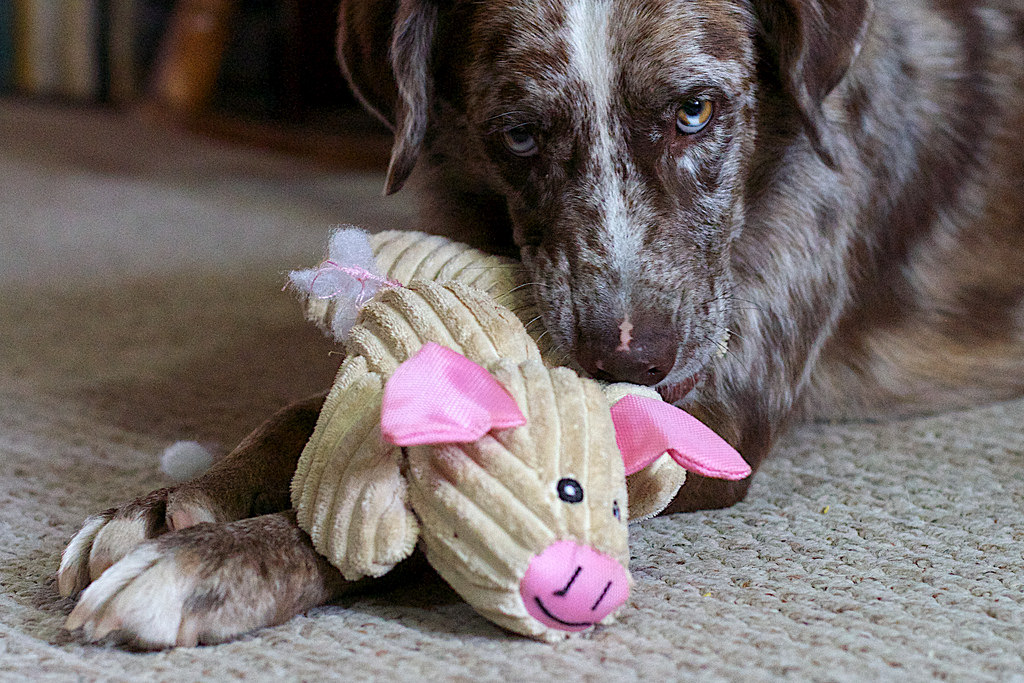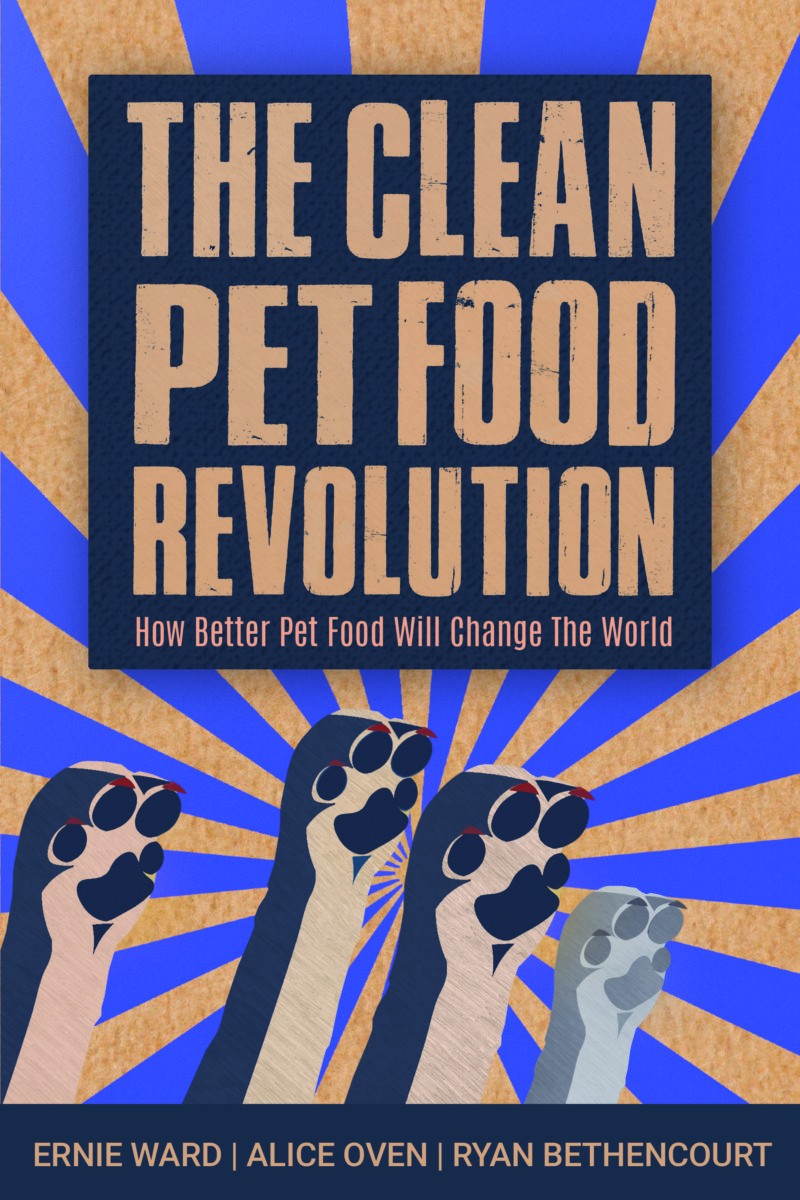I’m pinching myself writing this but, no, it’s not a dream: our book The Clean Pet Food Revolution: How Better Pet Food Will Change the World is coming out on 9th December! You can find it listed on Amazon and on the publisher’s website here (available for pre-order, go on, you know you want to). Co-authored by Ernie Ward, an award-winning American veterinarian, and Ryan Bethencourt, an entrepreneur I’ve admired since I first became interested in ‘clean meat’, our book is published by Lantern, who specialise in animal advocacy and social justice. I can’t think of a better fit for it.

I first met Ernie at a veterinary conference in Granada back in 2016. A few bottles of Spanish wine later, we were waving away the complimentary Manchego and chorizo and realising we shared a passion for animal ethics that went beyond companion animal medicine. Fast-forward two years and I got a Skype call. Now Chief Veterinary Officer at biotech pet food startup Wild Earth, Ernie had a proposition for me: “Ryan and I want you to help us write a book. A book about how pet food can change the world!”

So here we are, a year later, and I hope that we’ve succeeded in writing that book. When I found out that our pets eat an estimated one quarter of all the meat-derived calories consumed in the U.S., making American dogs and cats alone equal to the fifth largest country in the world in terms of animal protein consumption, I realised that the meat we feed our pets is a serious issue. The Amazon burns so that we can eat more beef, while reports have reiterated that we must drastically reduce human meat consumption to save the planet. But what nobody’s addressing is that we have to include pets in our dietary footprint too. Dogs and cats have become an integral part of human society, which means that the way we feed them must also become part of the changes we make. And that’s even before we consider the health problems associated with the animal meat in commercial pet food and the ethical ‘feeding friction’ many of us feel when we sanction the deaths of hundreds of farmed animals to feed one beloved pet. Looking at comments on social media, it’s clear that many vegans and vegetarians feel uncomfortable with this scenario but also that there’s a tremendous amount of misinformation about what our pets need to be healthy. Are dogs really carnivorous mini-wolves, hungry for animal flesh? Is it animal abuse to transition your cat to a plant-based diet? Where do our dogs and cats get their protein? What about taurine? Is it ethical to feed our pets insects? And does so-called ‘lab-grown’ meat hold the answers? Our book aims to answer all these questions, as well as delving into the problems associated with our current feeding habits.

Chapter 1 kicks off by exploring why conventional animal meat-based dog and cat might not be the healthiest thing we can feed our pets. It documents the multiple instances of pet food recalls, including the euthanasia drug contamination that triggered a massive nationwide recall in 2018. It also investigates the quality of the meat in commercial rendered pet food. In Chapter 5 we look at the rise of premium pet foods and investigate how healthy these options really are in comparison. Pet parents are bombarded with advice from friends, recommendations from veterinarians, instructions from raw-meat zealots, advertising from pet food companies, home-baked cat treat recipes from websites, campaigns from vegan dog owners, and horror stories from news agencies on pet food recalls. How can we sift through the clutter and determine what our dogs and cats actually need? I hope that our book will help.
It’s safe to say our pets aren’t losing sleep worrying about global warming and the suffering of broiler chickens but Ernie, Ryan and I think that we, as owners, should care. In Chapters 2, 3 and 4, we’ll look at our wider responsibilities as pet owners, both as inhabitants of a struggling planet and ethical consumers in a modern food system built on animal suffering. We investigate how we’ve come to see dogs and cats as different to ‘food’ animals, and the staggering impact this is having on the planet: making all that meat for pets creates about 64 million metric tons of greenhouse gases each year, matching the equivalent of the annual exhaust puffed out by nearly 14 million cars.

So why aren’t more people rethinking meat-based pet food? The first barrier to eliminating animal meats from pet food is ideological. What right do humans have to impose our values on our pets? How can we interfere with what is “natural” for a wolf-descendent or feline predator? Chapters 6, 7, and 8 debunk the mythology that our pets need animal meat to survive and show that both dogs and cats can thrive on animal-free diets, so long as they consume the necessary nutrients. The second barrier is the current lack of quality or viable alternatives to conventional animal meat–based pet food. Excitingly, food biotech is changing this: we’ve dedicated the largest part of this book to the exciting new innovations in the pet food industry that are going to revolutionize pet diets. In Chapters 7 and 8, we explore the benefits and challenges for plant-based pets. Chapters 9 to 12 are devoted to the stories of companies developing everything from new plant-based proteins, to cricket-flour dog treats, clean cellular meats and finless fish and mouse meats for cats, to fungal and yeast proteins, and beyond. We finish the book by exploring how pet food is currently tested on captive companion animals and Ernie talks to Tim Bowser at PetMech, who has dedicated his life to finding a more ethical way to ensure that pet food is safe.
My favourite part of this writing project was getting to interview some of the brilliant minds behind the new biotech startups in this space. I spoke with Shannon Falconer, CEO of Because Animals, whose superfood algae mix I sprinkle onto JD’s food every morning; with Ron Shigeta, co-founder of Wild Earth, who are making fungi-based protein that dogs literally go wild for (I’ve seen it); with Ross Lamond, founder of Bug Bakes dog treats, who convinced me to radically reassess my assumptions around the ethics of insect consumption; with Klaus Wagner, whose Green Petfood company plant trees to offset their carbon emissions; and with Rich Kelleman, CEO of Bond Pet Foods, who (along with Wild Earth and Because Animals) is aiming to develop cell-based meat for pets – real animal protein without the animal cruelty. I also got to chat with Mike Selden, CEO of Finless Foods, and Sandhya Sriram, founder of Shiok Meats in Singapore, both creating actual seafood from the cells of blue fin tuna and shrimp and thus removing the environmental and ethical horrors associated with by-catch, aquaculture and fish slaughter. What struck me most about all these interviews was the way that every one of these innovators was motivated not by profit, but by fierce compassion. Whether trying to make the planet a better place for farm animals, pets or people, these CEOs are using science to disrupt and rebuild our broken food system. I’m in awe of them, and if you haven’t already checked out their companies, I urge you to do so.

I should also mention the other experts I had an excuse to pester with questions during the writing of this book. Thank you to Chris Bryant, who shared his research on consumer attitudes to cell-based meat with me over a pint in Bristol, and has been endlessly supportive of this project. The chapters on plant-based pets would have been very hard to write without the insights of Andrew Knight, Professor of Animal Welfare and Ethics and founder of Vegepets.info, a source for evidence-based science on the benefits of removing meat from your pets’ diet. I also loved talking with Michelle Cehn, a vegan influencer whose dog Chance has thrived on a plant-based diet since she adopted him from a rescue shelter twelve years ago. Finally, Marc Bekoff, Professor of Ecology and Evolutionary Biology, gave me some real (pet?)food for thought discussing how his dogs loved to share his own vegan food, peanut butter and jelly bagels powering them over the Boulder mountain trails! I want to say a huge thank you to all these busy people who gave up their precious time to talk to Skype with me and humour my endless questions.
The message of The Clean Pet Food Revolution is ultimately and not or. The revolutionary pet food companies we talk to in the book aren’t taking any of our pets’ dietary choices away. Instead, they’re giving us a plethora of new options. You might feed your dog a vegetarian diet but supplement it with the occasional cut of beef. Perhaps you stick to your current chicken kibble but buy koji biscuits for treats. If you read the book and make one change that helps feed your pet more nutritiously, more ethically, or more safely, we’ve done something right. Vive la révolution!

